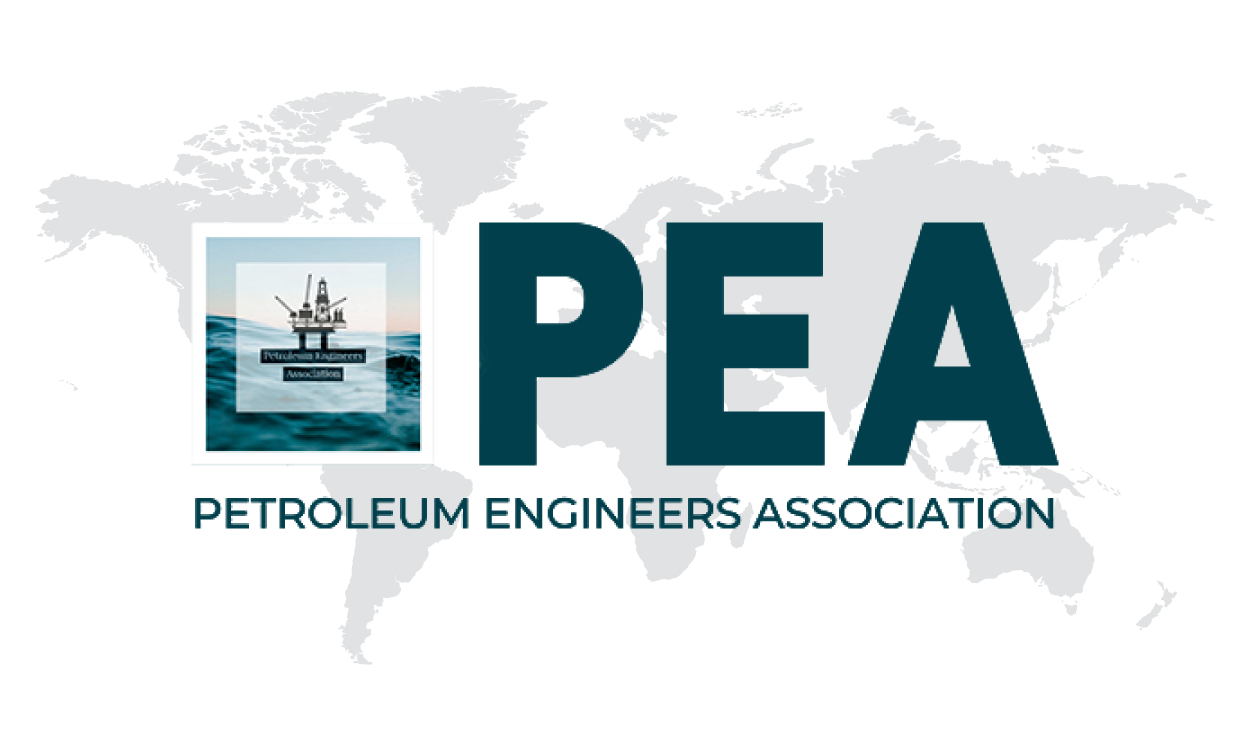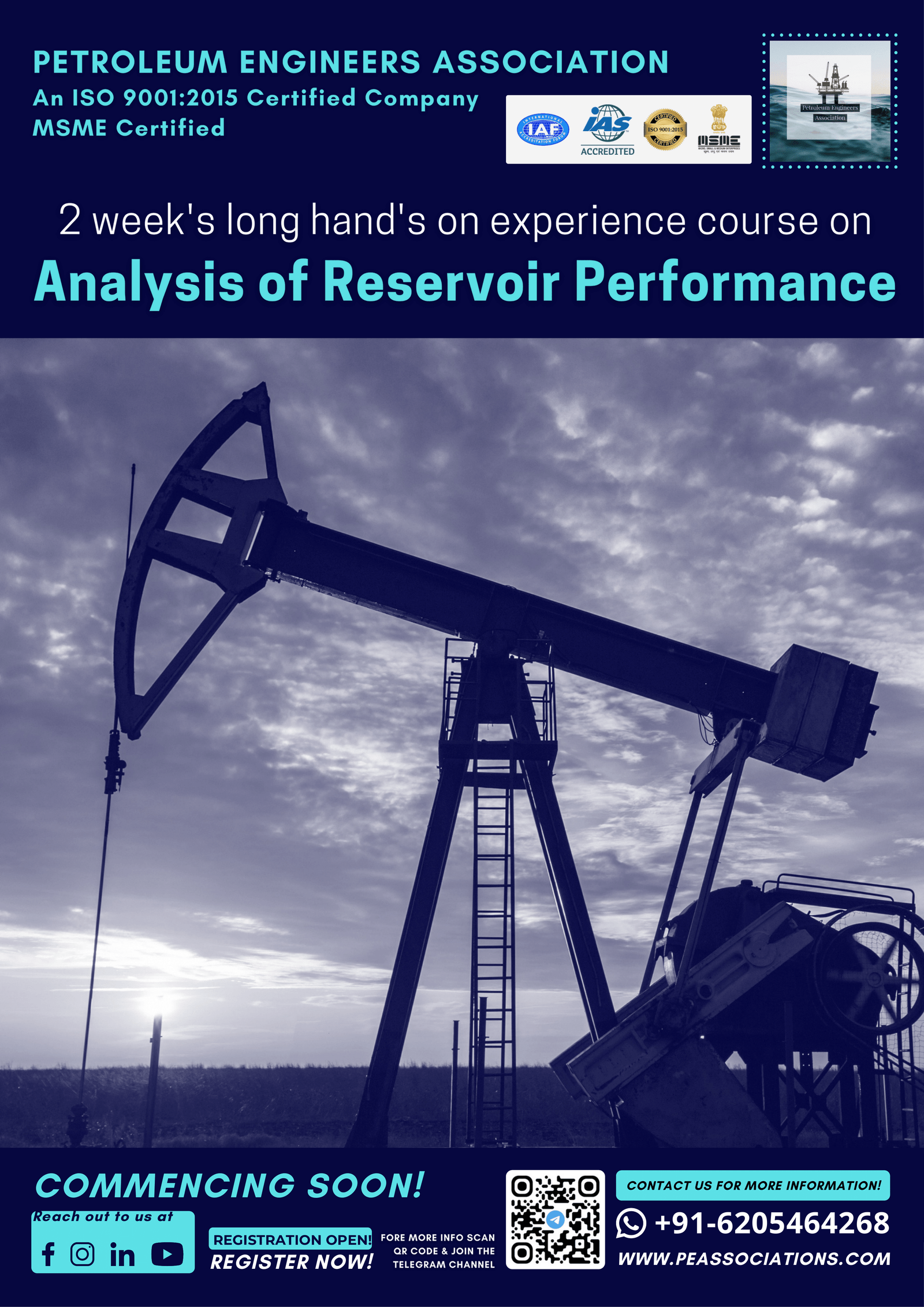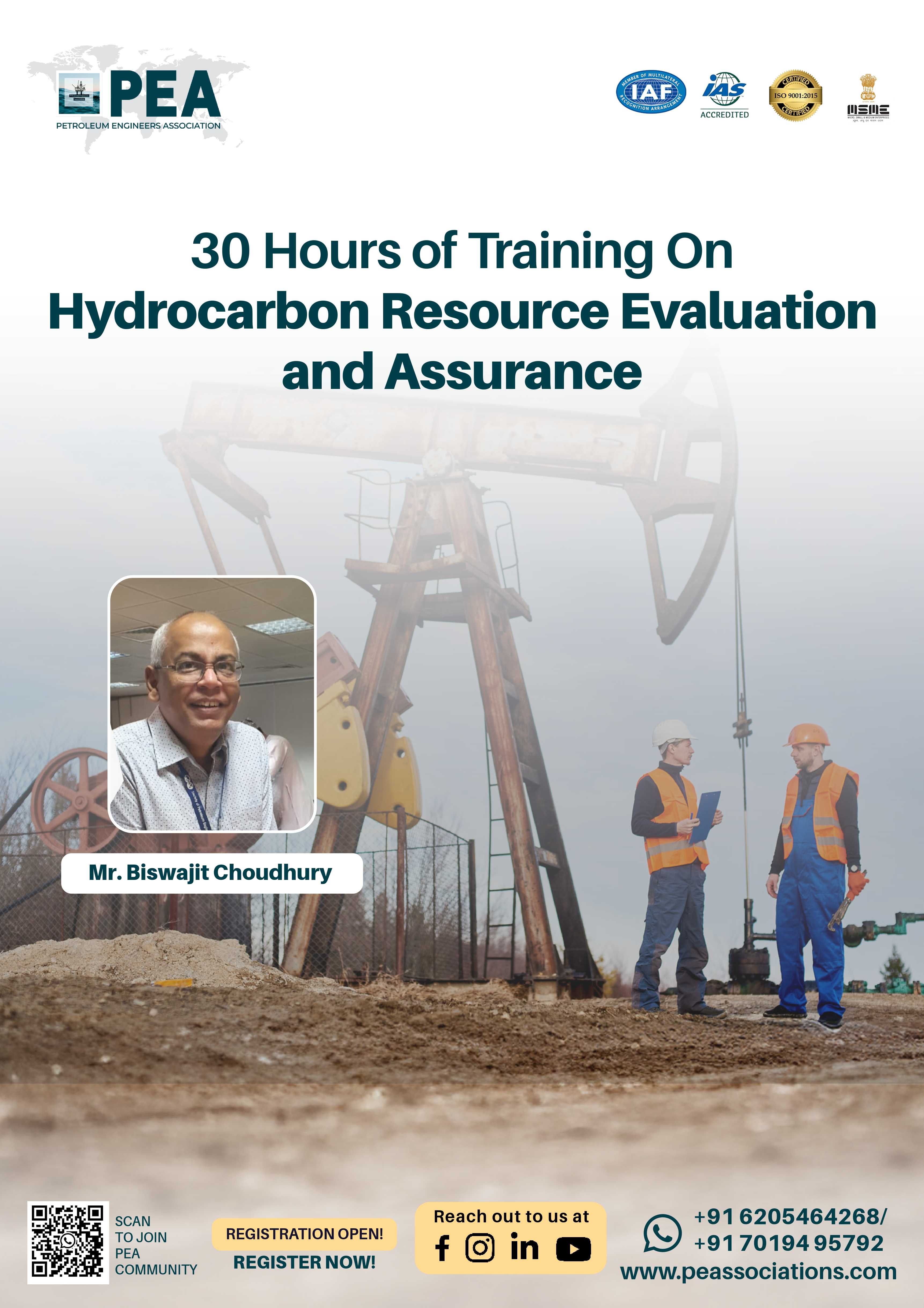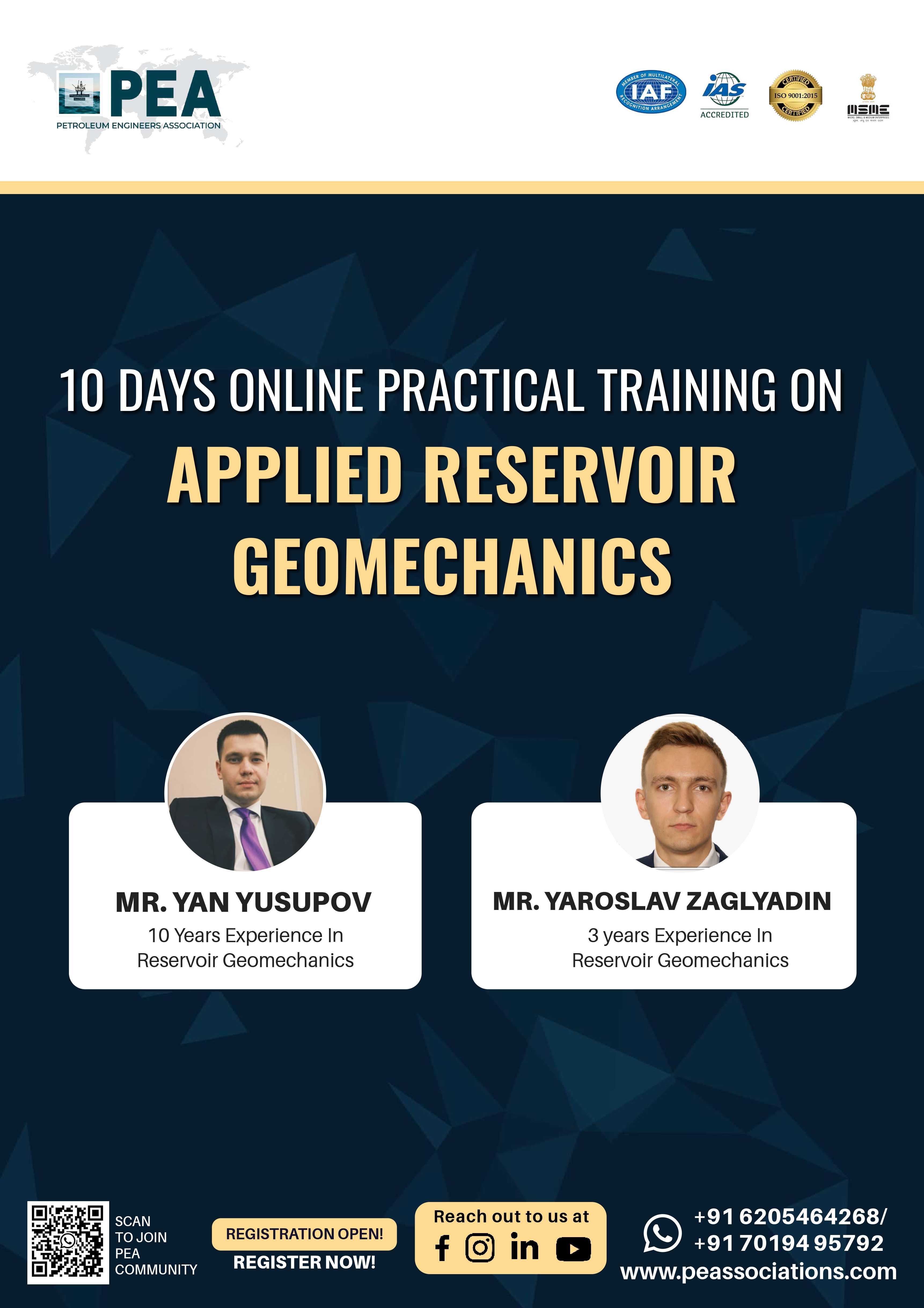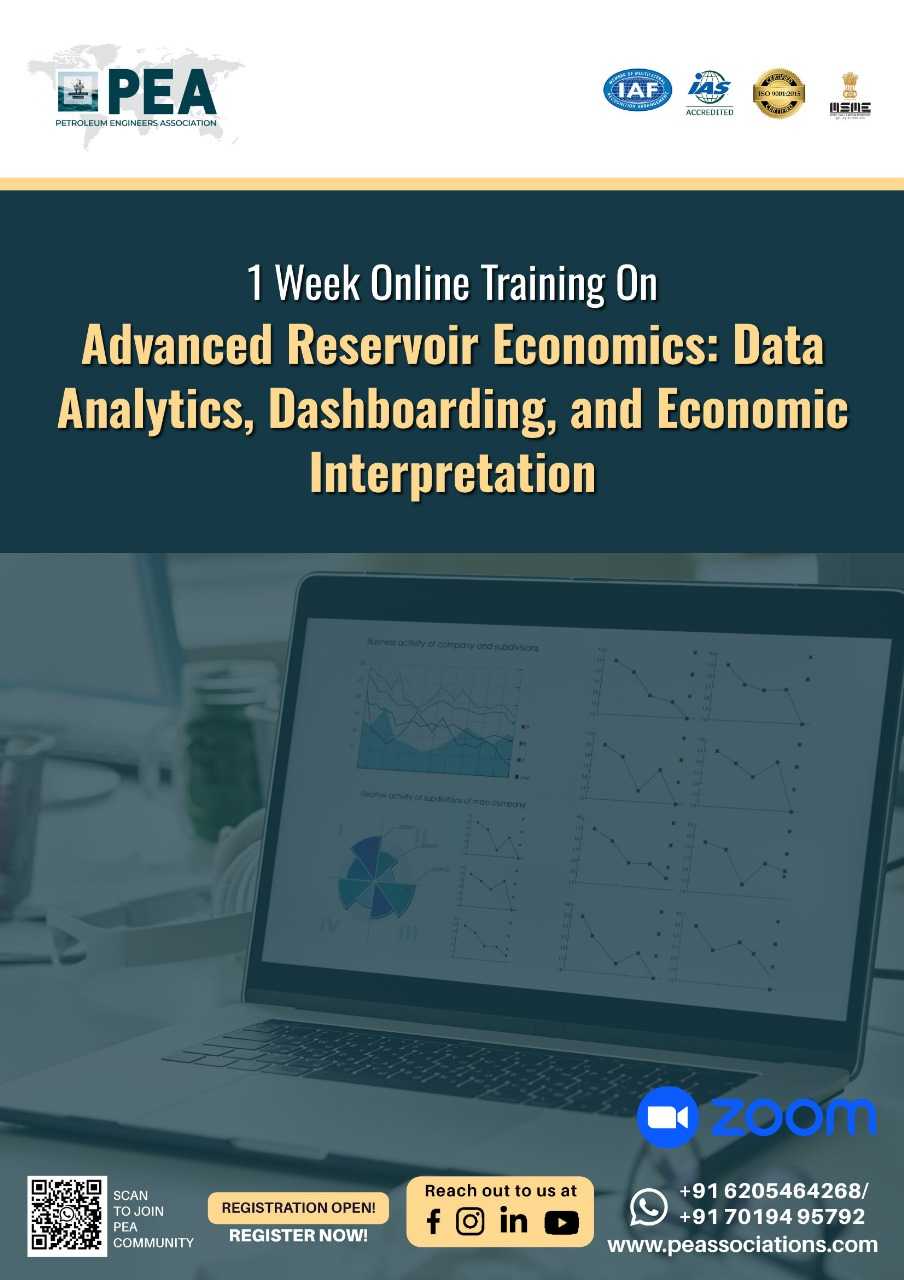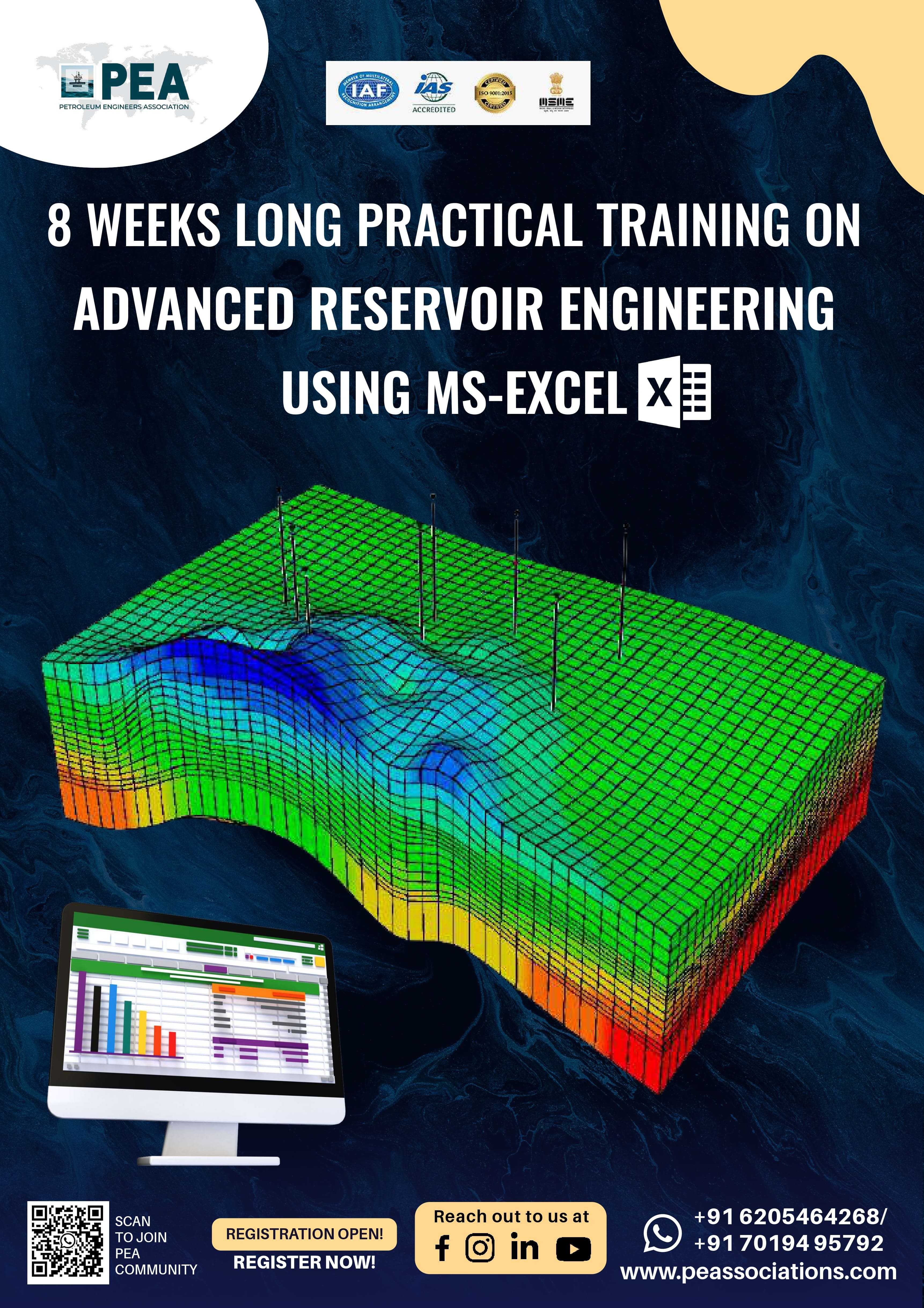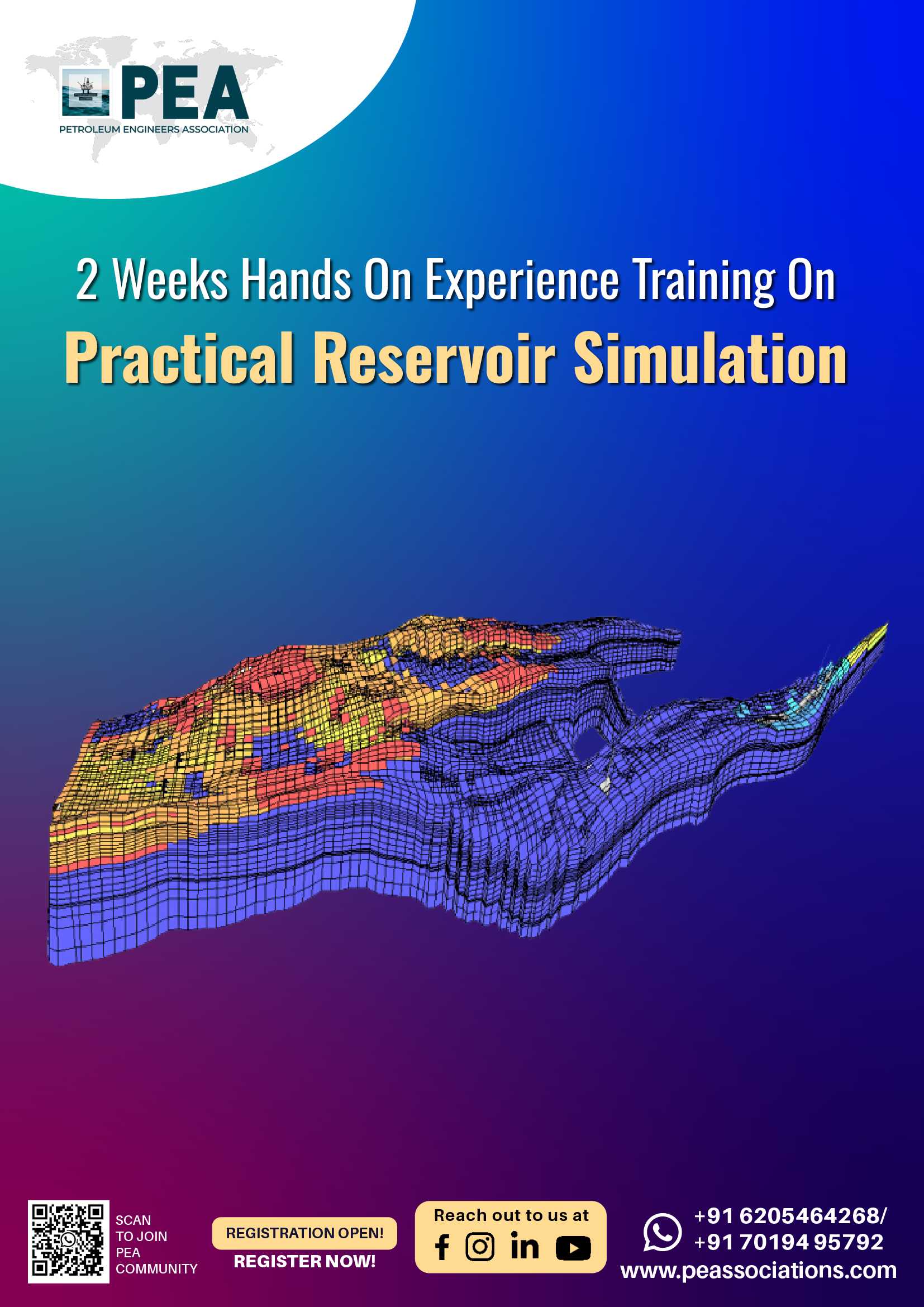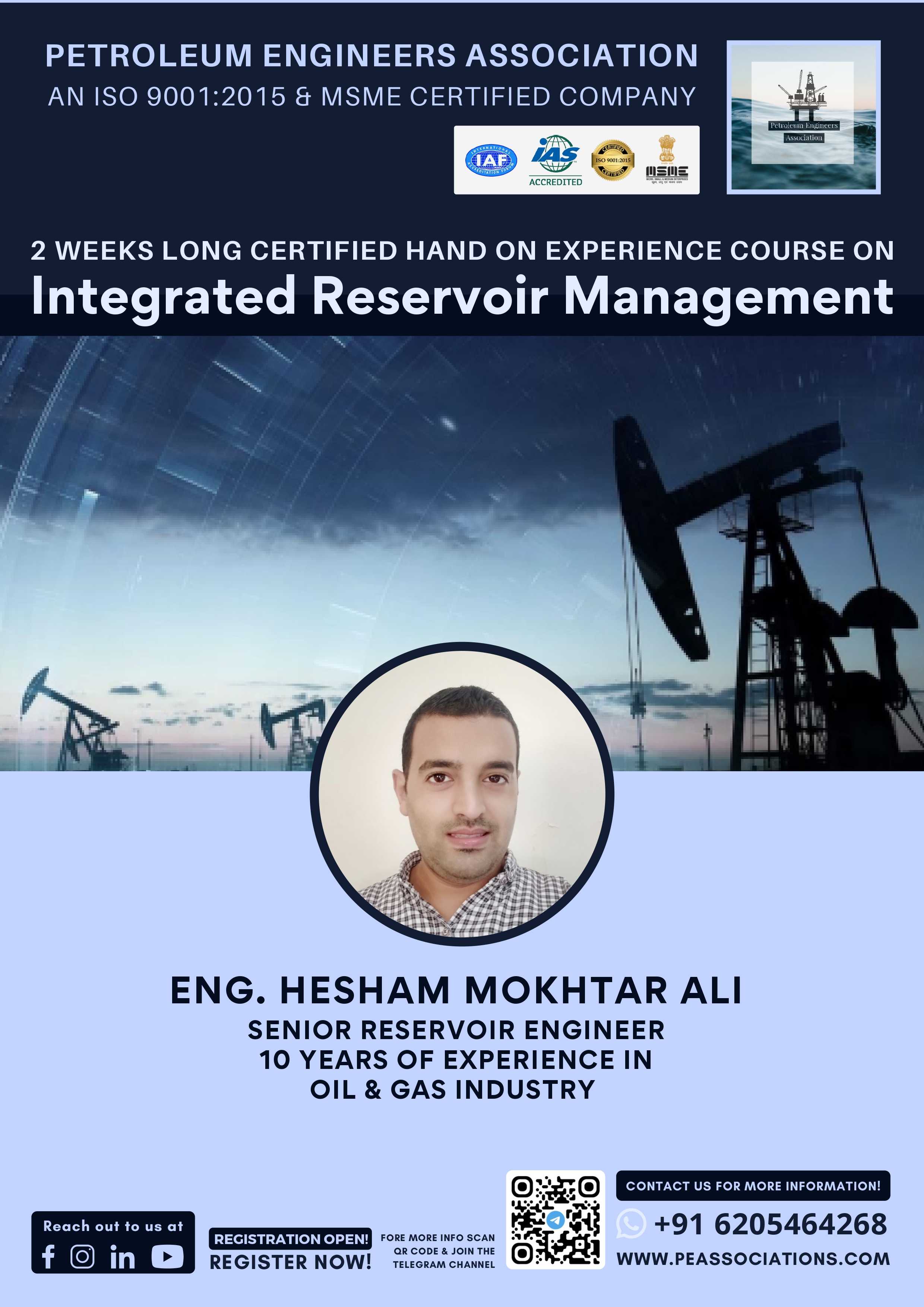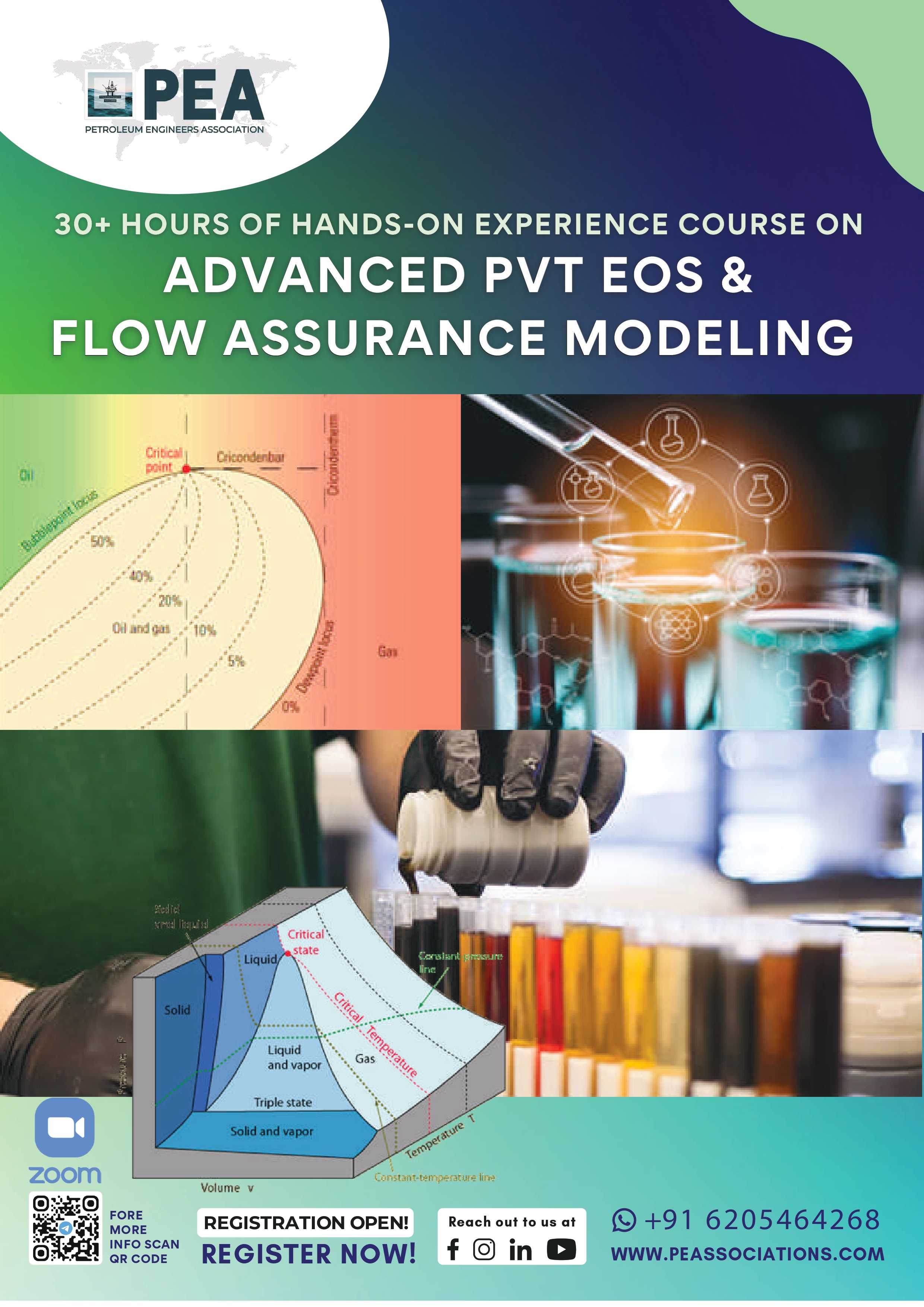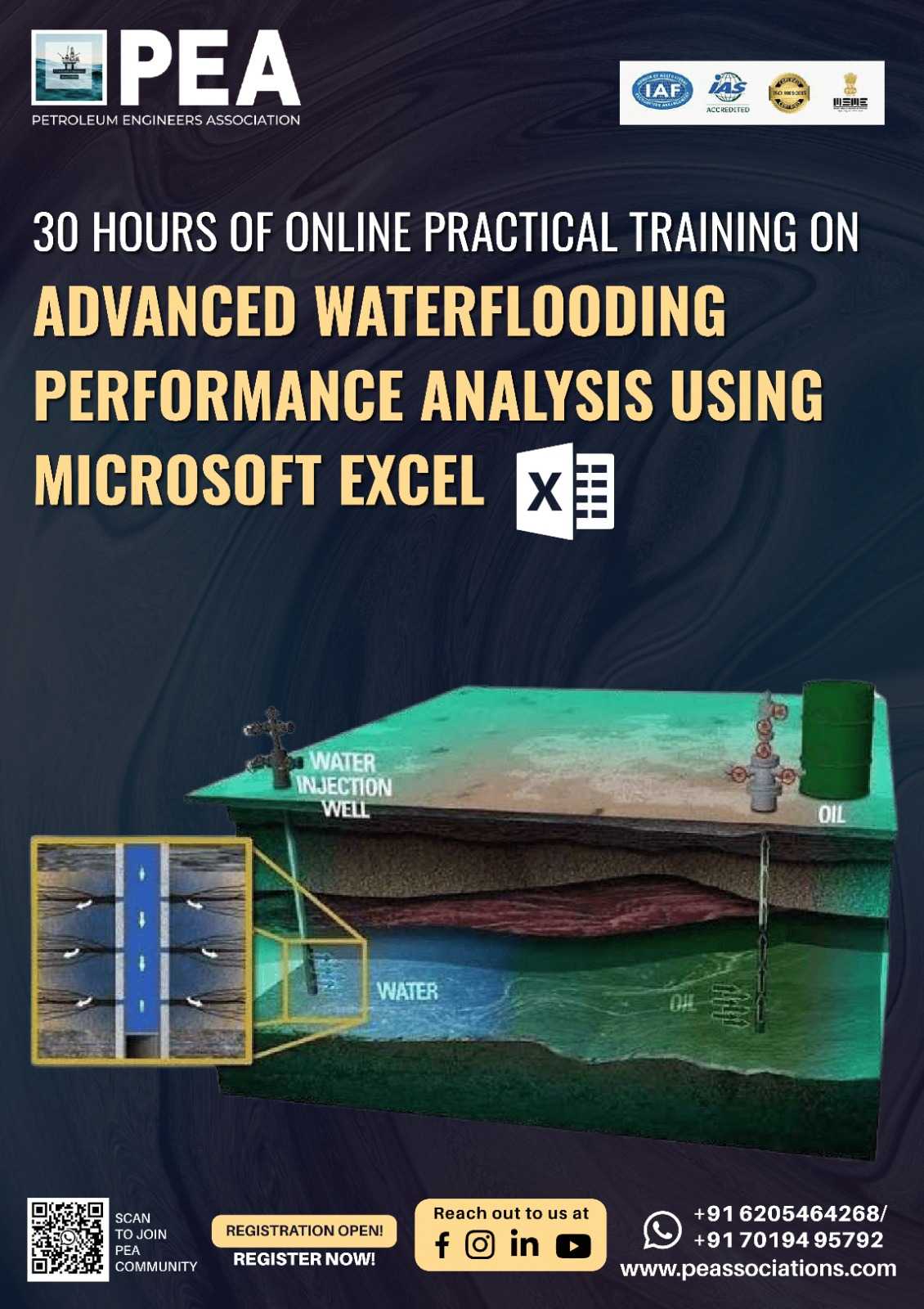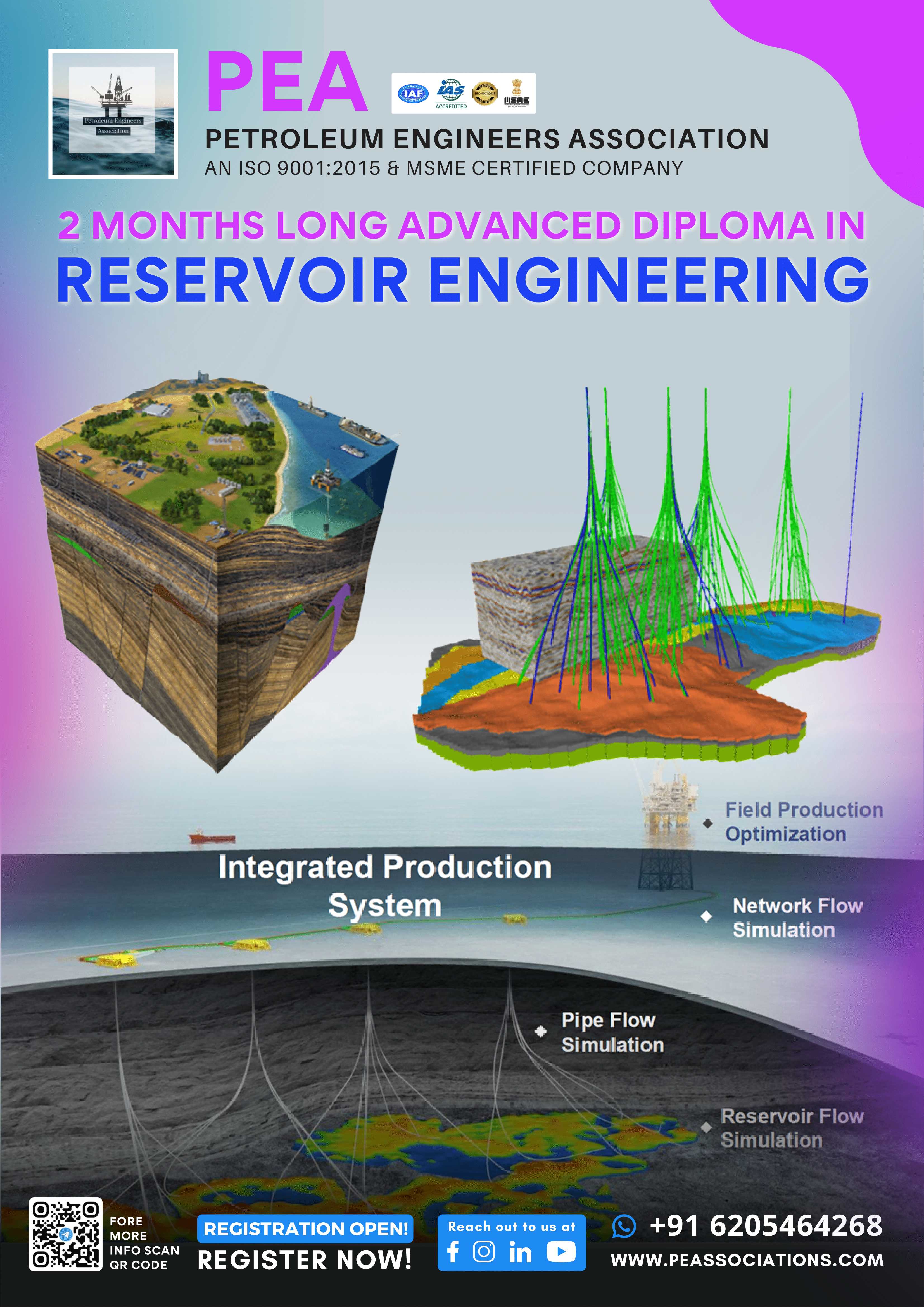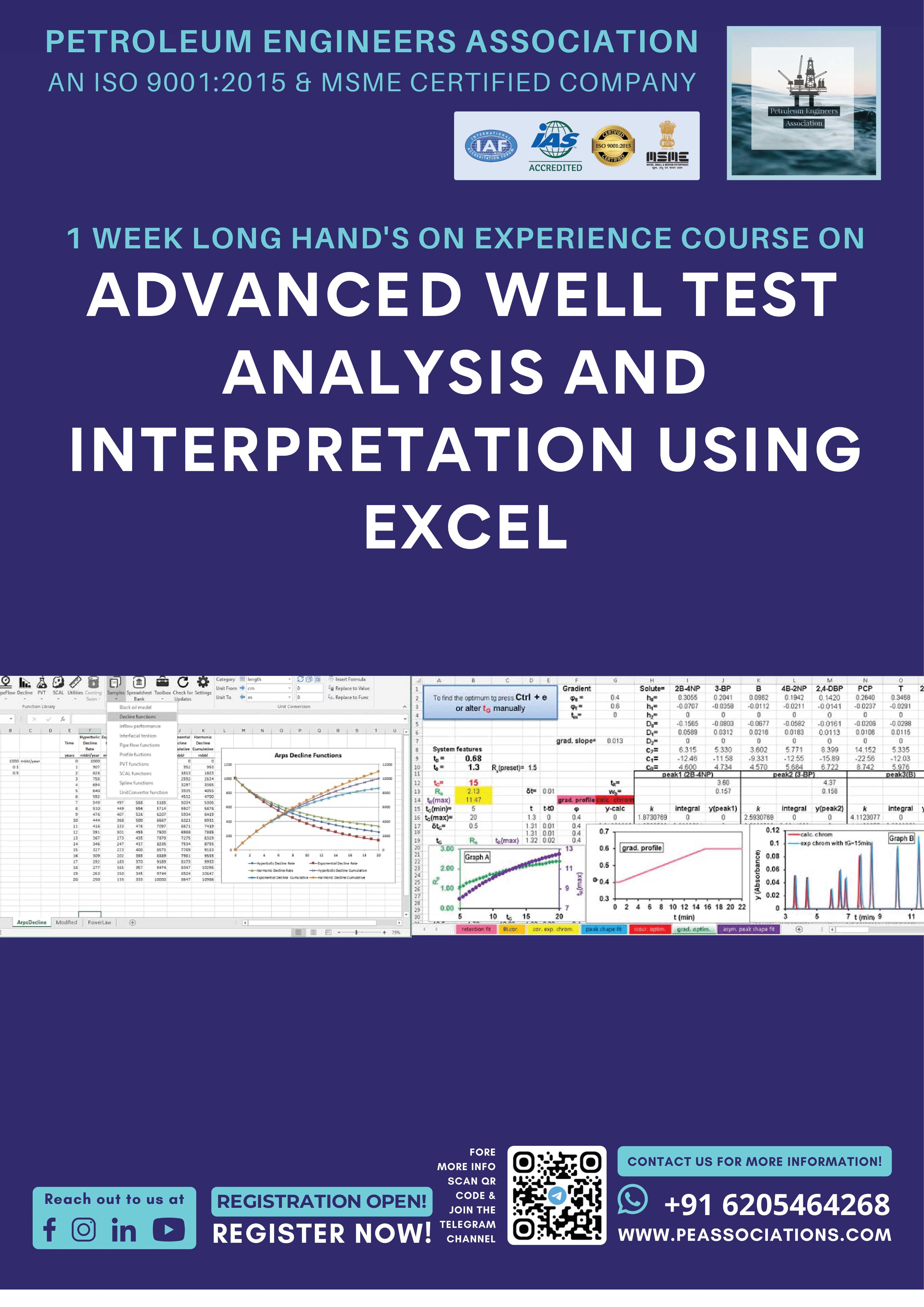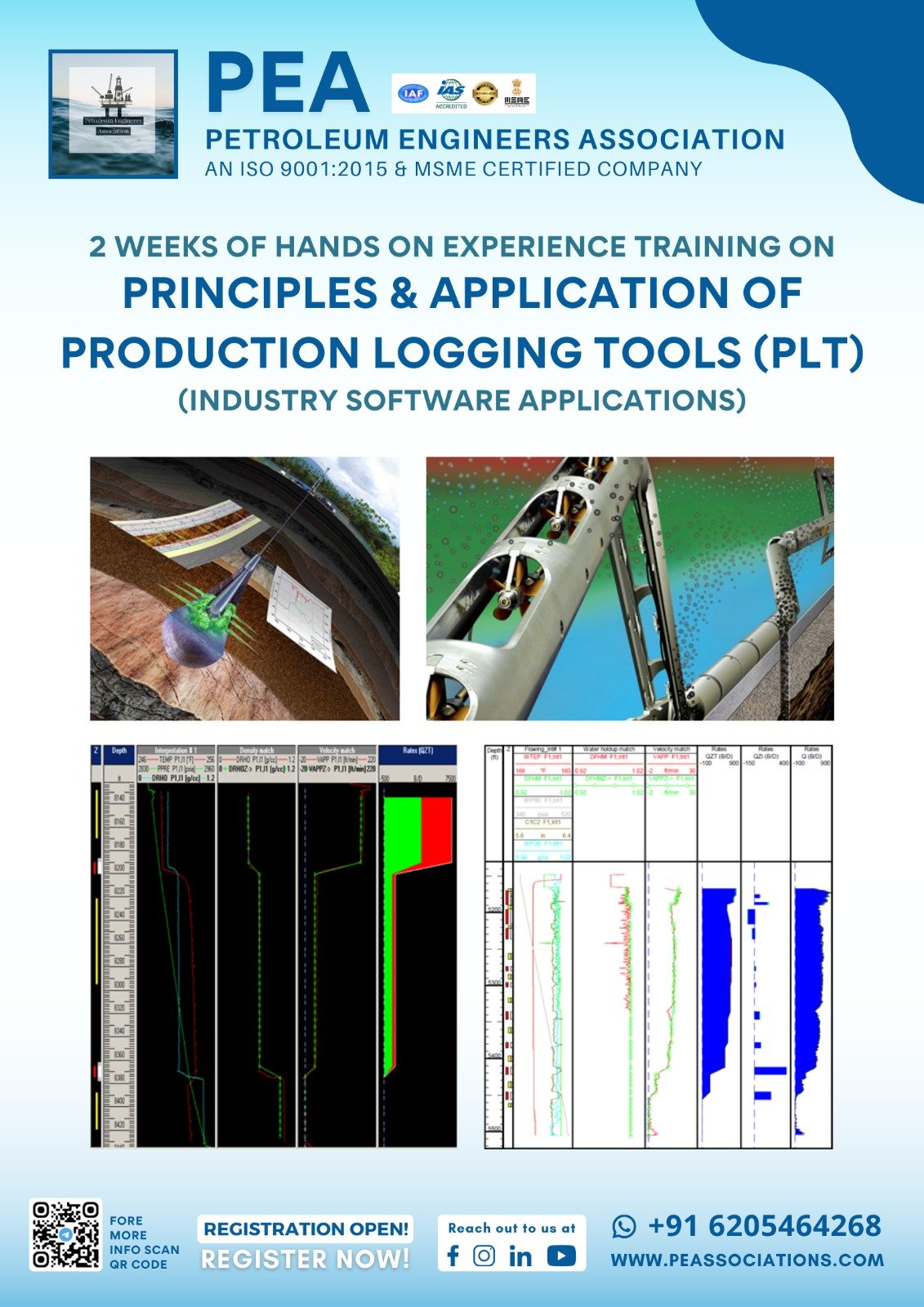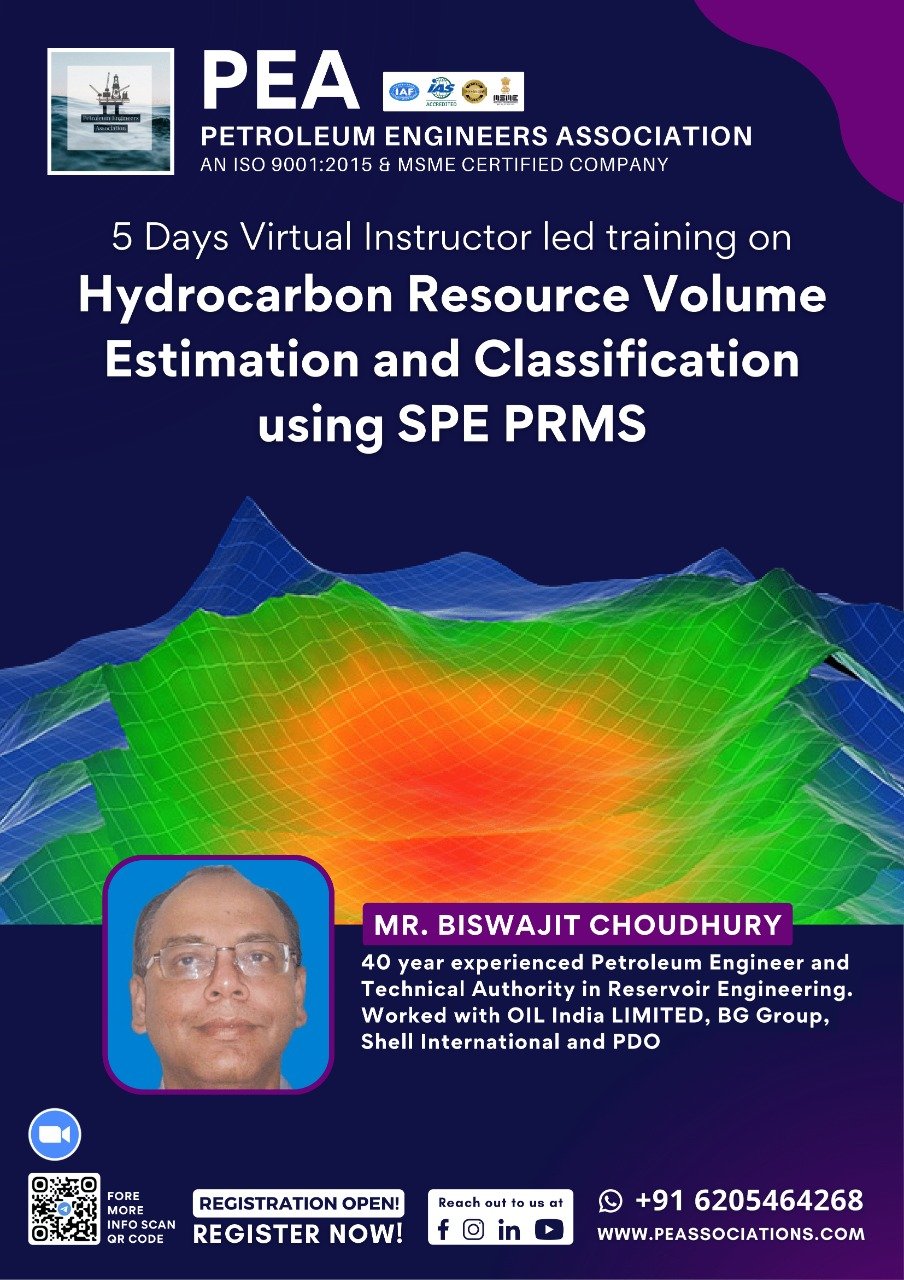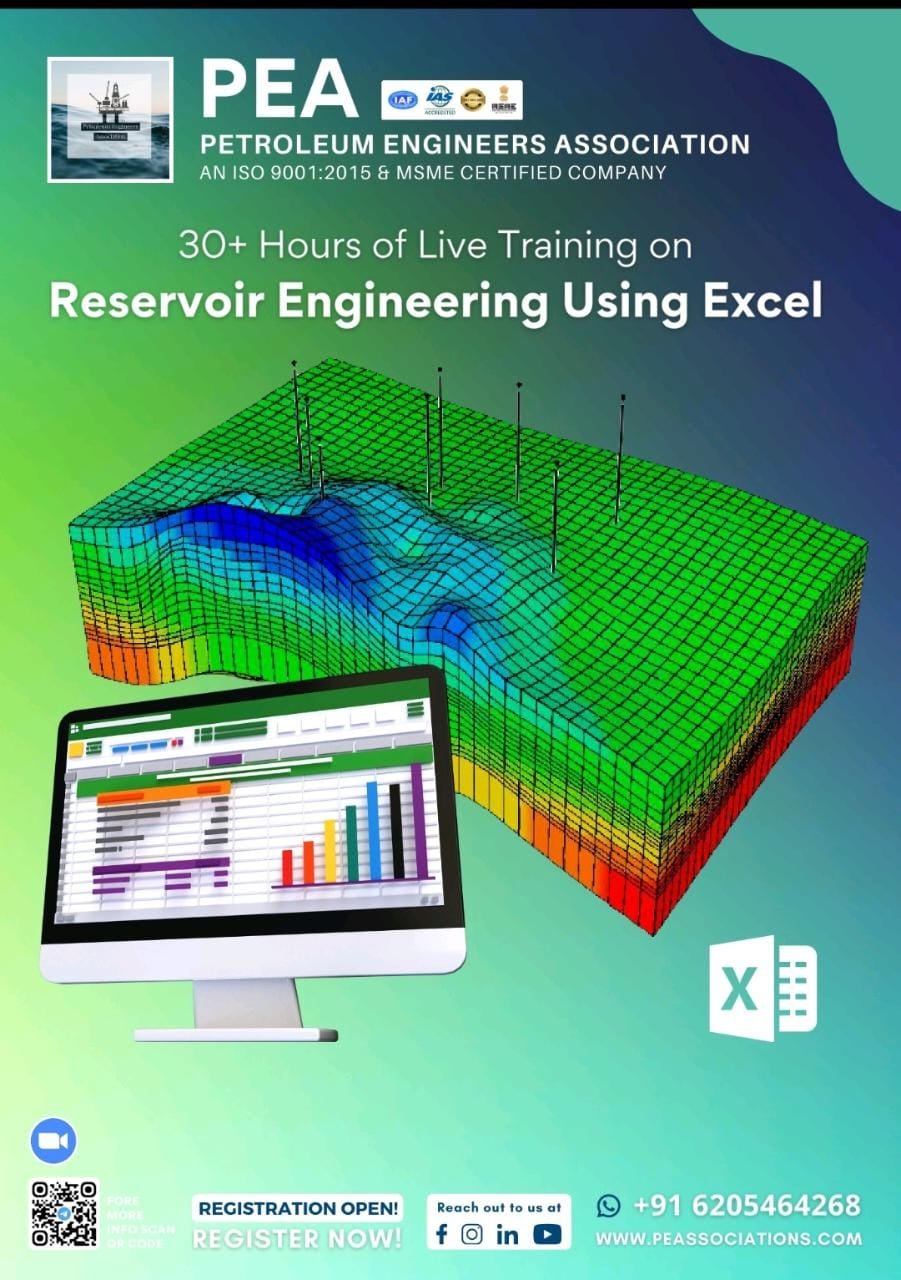Boost your team's skills and your budget! Enjoy group discounts for collaborative learning. Send an inquiry to info@peassociations.com.
Reservoir Performance Analysis & Surveillance
Description
The Reservoir Performance Analysis & Surveillance course is designed to provide a comprehensive understanding of the techniques and methods used in analyzing and monitoring the performance of oil and gas reservoirs. The course covers various aspects of reservoir engineering, data analysis, and surveillance techniques to optimize reservoir production and maximize hydrocarbon recovery.
During the course, participants will learn about the fundamental concepts of reservoir engineering, including reservoir characterization, fluid flow in porous media, and reservoir simulation. They will also explore different reservoir performance analysis techniques, such as decline curve analysis, material balance calculations, and production forecasting.
Demo Class
Understanding and improving reservoir performance is crucial for maximizing hydrocarbon recovery while minimizing operational challenges. This course delves into key concepts, tools, and techniques used in modern reservoir analysis and surveillance. By bridging theory with practical applications, participants will develop a robust framework for effective reservoir management.
The course combines interactive lectures, group discussions, and hands-on exercises using real-world case studies. Participants will engage in problem-solving sessions and utilize software tools to analyze and interpret reservoir data.
Day 1
· Introduction
· Workflows and Key Features
· Analysis Reservoir Engineering Tools
· Workspace Definition
· Definitions for File extensions
· Import Data to the Workspace
· Case Studies and Examples
Day 2
· Project Administration
· Database Fundamentals
· Data Tables
· Edit Schema Tables
· Data Guidelines
· Calculated Variables and System Functions
· Data Dictionary
· Case Studies and Examples
Day 3
· Analytical Mapping
· Estimating and Displaying Drainage Radius Maps
· Plotting Settings
· Data Filtering and Categories
· Analysis Reporting
· Case Studies and Examples
Day 4
· Production Forecasting Tools
· Forecasting Flow Models
· Empirical Method (Arps Approach)
· Analytical Method (Fetkovich Type Curve)
· Forecast Schedules
· Calculated Phase Forecast
· Saving Forecasts
· Determination of STOIIP and Remaining Reserves
· Case Studies and Examples
Day 5
· Reservoir Performance Analysis
· Determination of Potential Remaining Reserves
· Water Breakthrough Diagnostic (Chan) Plotting
· After-Before-Compare (ABC) Plotting
· Water Injection Diagnostics using Hall Plot
· Waterflooding Surveillance Analysis
· Case Studies and Examples
On successful completion of this training course, PEA Certificate will be awarded to the delegates

Hesham Mokhtar is a Reservoir Engineering Team Leader at General Petroleum Company (GPC) in Egypt. He has extensive experience in reservoir management, characterization, and production optimization. He is skilled in using various software for reservoir simulation and analysis. He has also delivered training courses on waterflooding, PVT analysis, reservoir simulation, and more.
- 14+ years of Petroleum Engineering expertise delivering technical solutions to E&P portfolios.
- Expert in reservoir evaluations, log interpretations, and hydrocarbon estimations using tools like Techlog, Volumetric, DCA, MBE, OFM, and KAPPA
- Analyzes production data, material balance, RFT/MDT data, and pressure transients for reservoir performance and optimization.

